I had my first “realization” when I was eight, as I was lying on my back out in a wheat field near our rented farmhouse in Aloha, Oregon. I sensed, I decided, that there was no god in the sky and no god perched over in the walnut tree and that the people, my parents and all the other people in the world, had made up all the stories about God, Soul, Heaven and Hell, etc., and that to believe as others do would be to become a blind follower of arbitrary human constructs. I didn’t have this realization in exactly these words, but the sense or sensation was there, sharp and clear.
This was a life-altering, perspective-founding experience for me, because in that moment I consciously penetrated the nature of human civilization and psychology. I knew I was alone in the Universe, and I knew I would always rely on my own view of “the nature of things.” I would never take anything at face value and always remain skeptical of the claims of humans. Seeing is believing. I would have made a great scientist. I settled for poetry.
From there I drifted along as a social agnostic till I was 27. It never seemed important or useful to me to argue about beliefs with others. And in those days, the mid to late 70s, people weren’t discussing such matters much anyway. One evening I was soaking in the tub when I had my second realization. I called my girlfriend to come into the bathroom and told her I just realized I had no real, conscious philosophy and that it was time for me to “get one.” As I was attending classes part-time at Portland State University, I began taking philosophy classes. When I took the class entitled “Existential Literature,” I knew I’d found my major affirmation. Perhaps my interest in Existentialism derived from a kind of nihilistic tendency to undermine all the structures, rules, and delusions of religion and even of some Western philosophies, but the real reason is my love of the potential in my fellow humans. I read Camus, Sartre, Gide, and de Beauvoir, mainly, which helped clear the psychic air for me. But I was irritated by the fact that humankind—thinking, reading, critical-minded humankind—found the conclusions of godlessness, soullessness, and afterlifelessness to be so unbearably negative. They couldn’t live with it; it was too bleak.
That’s when I began to meditate, reflect, think logically, and write in order to find the positive in Existentialism. Thus I coined the expression “Positive Existentialism.” In other words, I realized that only when the whole of humankind can come to realize that we’re “grounded in Earth” can we work together to create a better world. Sartre’s final words really helped here, that “with freedom comes responsibility.” Since we can’t depend on supernatural beliefs, beings, or practices to help us, then it’s up to us to take action to create a better world, here and now. My idea of Positive Existentialism has come in handy with students and others who come to me saying, “Why do anything? I’m just going to die anyway.” I’d reply, “Why not set out to do everything you dream of doing? Why not fulfill your potential, be the best you can be? You’re alive here and now, and this, for all you know, is your one and only opportunity. Besides, would living forever be reason for you to do everything you otherwise can’t bother to do because you’re going to die anyway? Sounds like a cop-out to me.”
A couple problems came up. One was morality and the other was free will. Larry Bowlden, who was the PSU Philosophy Department head and who was teaching the Existential Literature class in 1977, said that maybe morality is based on intuition, that we know intrinsically that’s it’s bad to kill one another. Ah, survival of the species, of course! Later, I found a page, which I used as a handout in some of my college intercultural communications classes to build unity, that translated and quoted fourteen versions of the Golden Rule, each from a different religion. The Golden Rule, religiously and secularly, is a universal. It was then that I realized that universals, principles, and ideals that no one can argue with and that can be found in all religions and practical philosophies is the answer that the Existentialists did not deliver.
As for free will, I came to realize that even the humanist, secularist, iconoclast, and/or atheist must accept certain unknowns. Do we have free will? Or is it just an illusion? I choose to believe we do have free will and are not simply driven by fate or providence or mechanical chains of events in nature. Otherwise, the world wouldn’t be changing so quickly. Many strong free wills are in conflict. So I came to accept, as bottom-line in my thinking, that morality is inherent, that free will exists in humans, and that humans must inevitably make choices. And if we must choose between dying (or killing others) and living a productive life (and not killing others), we must choose the latter. Many years later I found affirmation for this idea in Plato’s concept that the Form (or Idea) of the Good is the ultimate object of knowledge. The human mind cannot compare seeking good and seeking bad without ultimately choosing to seek good. Good is shinier. Not that we don’t backslide now and then.
Most of these thoughts began to emerge in my 40s, as I was building a cabin in the woods.
Zen Buddhism came to me first from my Grandma Glenda, who was into the esoteric (Rosicrucians, for one). There was an atmosphere of peace amidst exotica in her home. There were Buddhas and books on the Far East, incense and Chinese checkers. But it was reading and writing poetry, years later, that led me to ancient Chinese and Japanese Zen (Buddhist) literature. That was in the 90s. I was 45 or so. And it was Zen poetry that led me haiku. (Note: I should mention that I “killed the Buddha,” which is an expression referring to a famous Zen koan, some years ago, so now I simply refer to Zen.) Positive Existentialism was the perfect secularization to set me up for Zen. Once I had the philosophical reality in place (nature only), how could I find peace and purpose in that reality?
Zen is psychology, all about the mind. Thus the emphasis on meditation. Some would call it self-psychology. And it is. It’s just not overly analytical. A good way to think about it is to focus on the idea of “universal mind.” This is why I like Buddha, because it wasn’t supernatural beings (who in his dream were merely tests of his enlightenment) by which he became enlightened; it was by transcending them and achieving a sense of universality in the face of the particulars of earthly existence, including the fact that we must die but just don’t know when. He realized that our fears and desires were our burden and that we need only to rid our fears and desires to be free. In Universal Mind, one can imagine one’s death, one’s not existing, and feel equanimous at the thought, even breathe a sigh of relief. This goes for all fears, desires, and other forms of monkeymindedness. One can let go of all these vanities.
So there are different kinds of meditation, each of which may be related to different brain wave states. One says, Clear the mind; seek emptiness. Another says, Attune your five senses to your body or to the outside world. The last says, Observe your thoughts; notice them, but don’t argue with, chastise, or dwell on them. Simply let the mind observe the thoughts as they pass (the mind is not the thinker but the observer of thoughts). Without being analytical, the mind will note the trouble spots. Adjusting the mind will come naturally this way.
If only haters could observe and note their hateful thoughts they’d slowly fade away (the thoughts, I mean)!
Two other problems came up: One is existence itself and the other is the human need to believe (in something or someone). I know Zen talks about nothingness, but I’ve come to think that this nothingness does not imply that matter, energy, space, and, by extension, life don’t exist. Nothingness can be conceived of, only by something, someone, a mind, and in relation to somethingness (think yin and yang here). So I choose to believe that, bottom line, we exist, we have free will and must choose good, ultimately, we are inherently moral, and we need to believe in something. These are my points of faith (but I eschew the word “faith” because the Evangelicals have monopolized and narrowed it). I was helped with the latter problem by Jung and Campbell. Jung said humans need to have a mythology to believe in. Campbell showed us that different tribes, cultures, religions, and stories contain many of the same elements, or archetypes. He posited the idea that these myths, symbols, patterns, and archetypes reflect the presence of psychic organs. While this idea may be helpful to account for common beliefs among diverse cultures, I’m not sure that this knowledge makes overcoming our worst inner selves any easier. If we have an incorrigible psychic organ called Trickster that regularly gets others into trouble, should we, or can we, overcome him?
Just because one doesn’t believe in the supernatural doesn’t mean one can’t have beliefs, healthy beliefs.
As for the inherent need to believe in something or someone, I believe that beliefs themselves are completely negotiable. Thus my final thesis: I believe that the highest faith we can have is in our selves and one another, to become better human beings and create a better world. This is my belief that supersedes all others in my world. It’s a lot to believe in, and, considering the mess that is this dangerous world, a long ways off. Believing in a supernatural being about whom we actually know nothing is infinitely easier and may be a way of shirking our responsibilities on Earth.
Did I mention “absurdity,” the “absurd hero”? Thurber’s moth, Voltaire’s Candide, Cervantes’ Don Quixote, Chance the Gardener in Kosinski’s Being There? There’s a lot of cowardice in believing in the given paradigm; it’s much bolder and deeper to believe in the nearly impossible.
Copyright 2017, by Rick Clark
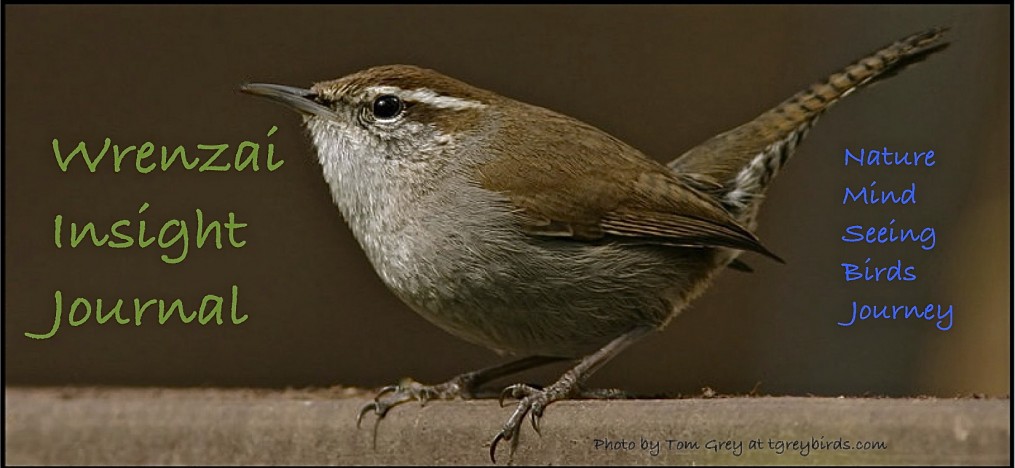
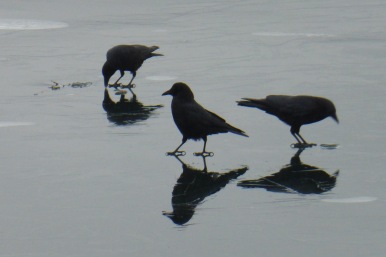
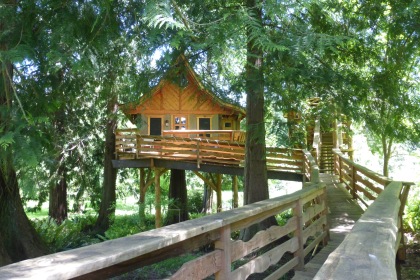

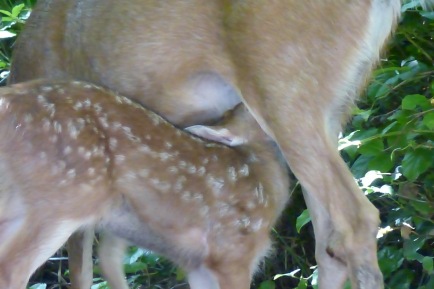






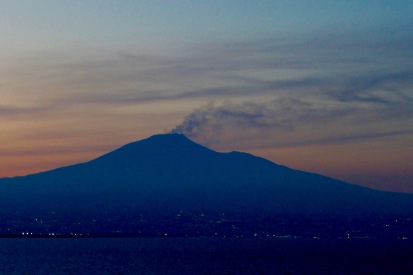

Rick, I found this so interesting and appreciate your vulnerability. It’s very connecting and inspiring. Thanks!
Thanks, Kay. Interesting that you mentioned vulnerability, as that was a theme at our recent Yoga on the Beach retreat, after which I wrote a haiku on the subject. I’d share it here, but I’m entering it in an international kukai (ranking), and it can’t be published anywhere. I’ll forward it by email!
So well said. Parallels my thinking over the years. Crows walk on the water of my mind. I loved the photos.
Can I forward this? Several of my friends and relatives could profit from reading this.
Really a marvelous piece of work.
Rory
Sent from my iPad
>
Thank you, Rory. I appreciate the good words. Yes, please pass on the blog to friends and family. Good to see you the other day!
Rick, I love reading your theories and thoughts. I couldn’t agree more and forget all about it as life gets in the way. I long to live in the moment, but find it so difficult.
Thanks, Marilyn. You know well that, like doing yoga, living in the moment is a practice and impossible to do all the time. Writing haiku, or at least in the inception, helps keep me in the moment now and then.
Rick, I live and breathe yoga, love the earth, do my best to live in the moment, to do my best to be my best every single day and do my part to make this world a better place. You also live this way. Your wonderful writing demonstrates the importance of being present and believing in doing one’s part in living a meaningful and full life. In addition to your philosophy, I do feel a divine presence exists. I feel divine presence in every breath, in every good deed, every being (human, wildlife, all creatures small and large), in trees, and earth itself. There is nothing supernatural about this beautiful presence I see in people. It’s very essence is nature itself. Free will, yes! Are babies born haters, racists, murderers? No. These are taught ways of being. On the flip side of the coin, one can be taught to love, respect, and nurture. Love does trump hate, always. -Fran
Thanks, Fran. I shy away from some words because of their connotations. Divine is one of them (holy is another). Divine is a root of divinity, which is another word for god (in any system), which for me smacks of the SUPER natural. But the word divine, as you describe it, is a nice way to give a golden glow or silver spin to Nature, which for me does not have a human-like of god-like consciousness. However, while nature may kill us unintentionally at any second, it also gives us everything we need. As long as we take responsibility for our lives and strive to create a better world, it doesn’t matter to me what anyone believes. Namaste!